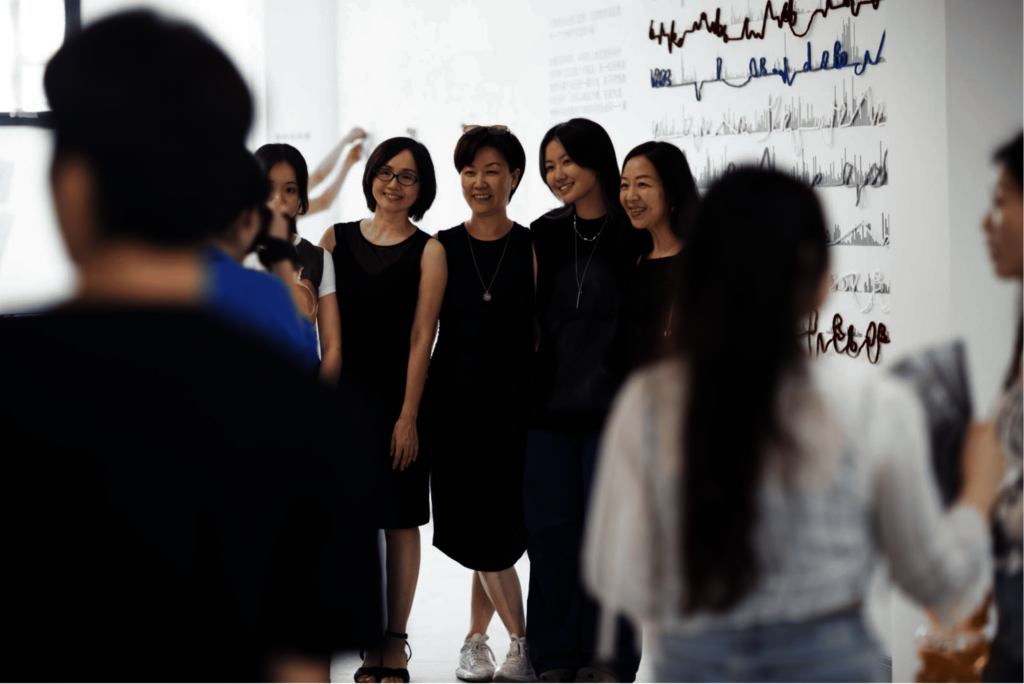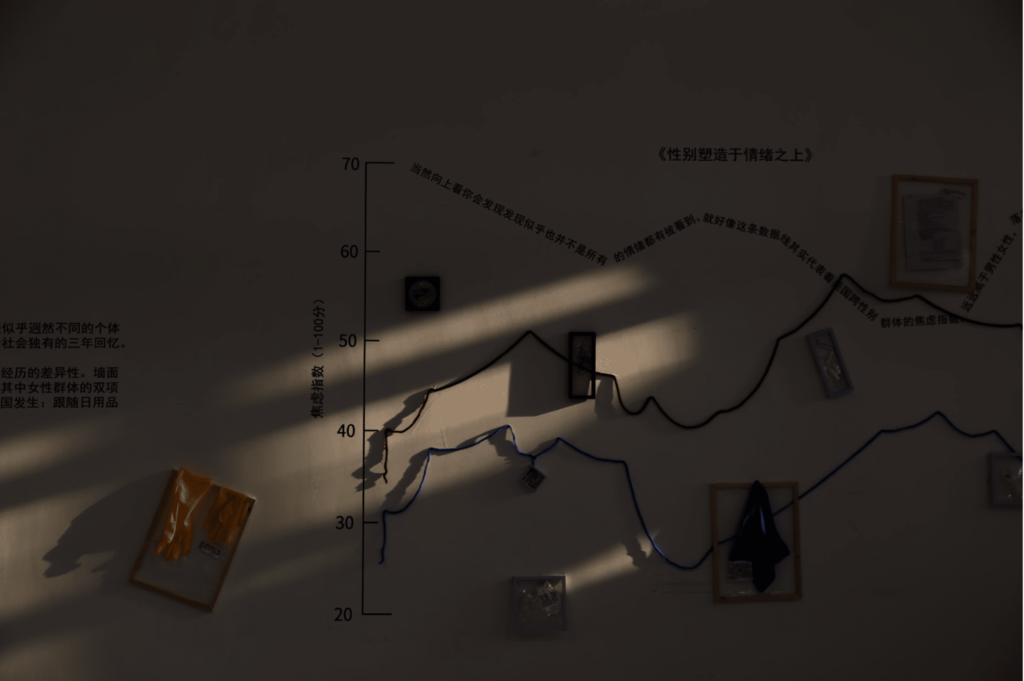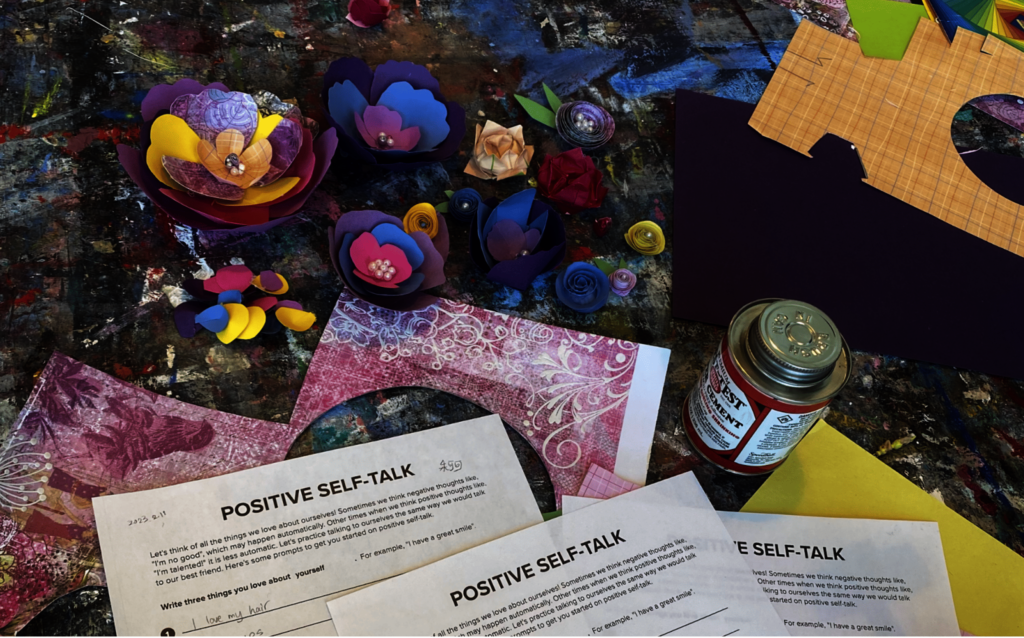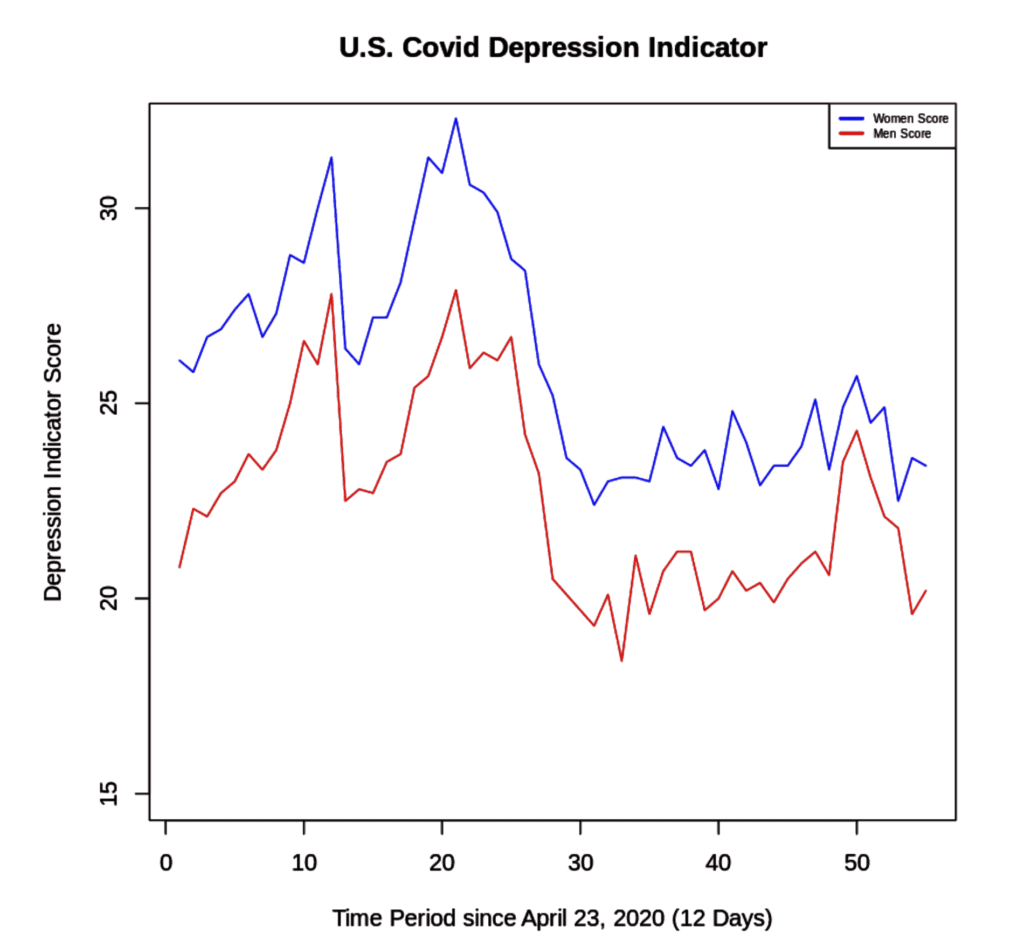By Coco | Plan USA Youth Leadership Academy participant
Coco, 17, is a participant in Plan International USA’s Youth Leadership Academy and the founder of The Shield Initiative. With Plan’s support, she’s raising awareness of young people’s mental health through art. Here, Coco shares how her activism is fostering a more equitable mental health experience for young people, in her own words.
My journey of advocacy started in a data analysis project. I was asked to analyze a national dataset and bumped into the U.S. Household Pulse Survey while researching online.
After a quick t-test on the difference between males’ and females’ anxiety and depression score over the past three years (2020 to 2023), I surprisingly found out that females have a much higher mental distress score in both measurements in comparison with males. The female population experienced about a 20% increase in their depression score than the male population, and the statistics are similar for anxiety.
But why? What causes the gender disparity in mental illness? I ended up researching online to find out the related factors.
It turns out mental health disparity is not at all uncommon to women and girls all over the world. Research has shown that compared to men, women are three times more likely to encounter mental health issues, and this statistic has been growing.
A study done across 73 countries discovered that this disparity is more pronounced among adolescents. Poor understanding of gender during the adolescent age of rapid physical changes causes girls to doubt their overall identity, leading to more serious mental distress.
I was shocked by these statistics, and how many people don’t know the mental health challenges that girls are going through. As these numbers remain in academic journals, I want to bring awareness on gender disparity by delivering the statistics to the public.
In order to investigate firsthand what causes this mental health disparity, I completed my own research on gender disparity in mental health during COVID-19. I analyzed the U.S. Household Pulse Survey data I found and built data models to study its correlation with COVID-19. Through the research, I found out that females are generally more impacted by the pandemic than males due to factors such as lack of decision-making power inside the household and lack of access to health care “services.”
This research inspired me to take actions to democratize knowledge on mental health inequity. With support and funding from Plan USA’s Youth Leadership Academy, I founded The Shield Initiative to combat mental health issues among youth with the medium of art therapy.
Art therapy emerged in the 1940s, gaining wider recognition by the 1970s. It’s a mental health profession aiding individuals to improve various aspects of their lives, using art to express emotions and address issues under professional guidance, facilitating understanding and discussion for effective problem-solving.
I experienced my own journey with stress a few years ago and came to realize that peers around me are often stuck in a mindset that stigmatizes rest-taking. Specifically, we don’t invest enough time for self-care, and, as a result, we build a work-life schedule that is prone to stress–related issues.
Practicing art since kindergarten and experiencing the power of creativity made me realize that what we need is simply a lifestyle that invests time and value in healthy resting. We need to educate young people on the importance and necessity of incorporating this type of practice into our schedule. What better way to do that than bringing art into our journey with mental health?
The two important missions we’ve been trying to achieve with Shield are: 1) to create awareness of the gender disparity in mental health data; and 2) to lead art therapy workshops with youth globally to alleviate mental health crises.
During the summer of 2023, in my hometown, Shanghai, I curated an exhibition to highlight the mental health impact of COVID-19 through data visualization. The exhibition was called “A Weaving Mess,” to capture the complexity of emotions and the fact that even negative emotions cannot be neglected by our society. The exhibition has seven installation pieces consisting of data visualizations made by yarn.
I exhibited the gender inequity dataset I found during my independent research to call attention to mental health disparity. Along with the major dataset, we included more detailed statistics on gender inequality to explain this phenomenon, such as the hours of household chores females had to complete compared to males during quarantine, or the number of girls that dropped out of school due to the pandemic.
The first step of change-making is to shed light on the existing inequity. Through the exhibition, we wanted to tell a story through numbers. In addition, we collected mental health data from the Shanghai population to highlight these mental health statistics.
The Shield Initiative also advances progress toward a more equitable mental health experience by leading art therapy workshops.
With a special focus on addressing gender disparity, I decided to take Shield’s first step in my current high school — an all-girl school. On Valentine’s Day, we organized a self-appreciation flower-folding workshop, where participants first filled in an appreciation worksheet to help them think about things they love about their body, spirit and energy. Then, we worked on flower–folding, and put each thing we love about ourselves on a petal of the paper flower.
We voluntarily started to fold appreciation flowers for each other, and eventually gathered a pile of paper flowers by the end of the workshop. Inspired by the positive changes this workshop produced on my local campus, we decided to expand Shield’s reach to more campuses, youth communities and countries. Now, Shield works in 15 schools and organizations in seven countries. The types of workshops Shield has led include:
Leading various workshops made me realize the power of seeing and being seen in the process of healing emotions, as well as the importance of having a connective community that supports one’s mental wellness. Moving forward, I encourage everyone to make art when you are struggling mentally. Here are some small art projects that can be easily done at home:
Try these techniques out! You can send a picture of your creation to our Instagram account to be posted on Shield.
Painting not only helps us to heal and express our emotions — we can also paint for activism, so that girls’ emotions are seen through the art we make.
I will continue the journey of advocating for mental health equity. With a paintbrush in hand, I am no longer afraid to make my voice heard.
Project reports on GlobalGiving are posted directly to globalgiving.org by Project Leaders as they are completed, generally every 3-4 months. To protect the integrity of these documents, GlobalGiving does not alter them; therefore you may find some language or formatting issues.
If you donate to this project or have donated to this project, you can recieve an email when this project posts a report. You can also subscribe for reports without donating.



